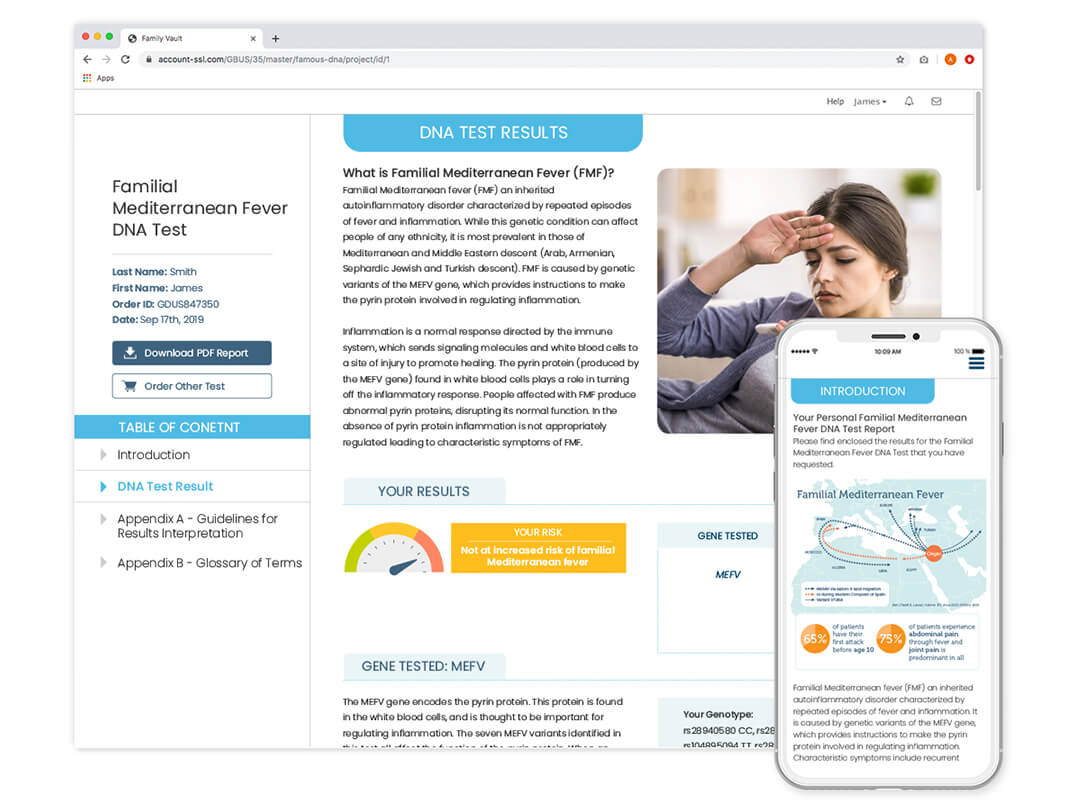Familial Mediterranean Fever DNA Test
Are you a genetic carrier for familial Mediterranean fever? Find out with this DNA Test.
- Detects seven MEFV variants which cause familial Mediterranean fever
- Accounts for 70% of familial Mediterranean fever cases in people of Arab, Armenian, Sephardic Jewish and Turkish descent
- 100% private and confidential online results
Already have DNA markers? Sign in and upload your data to view results.
Need to take the DNA Test? Order our easy-to-use swab kit.





